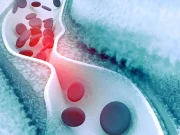Intake during the three months before conception associated with odds of HDP
By Lori Solomon HealthDay Reporter
TUESDAY, July 16, 2024 (HealthDay News) — People with higher intakes of calcium and zinc before pregnancy appear to have a significantly lower risk for hypertensive disorders of pregnancy (HDP), according to research presented during NUTRITION 2024, the annual meeting of the American Society for Nutrition, held from June 29 to July 2 in Chicago.
Liping Lu, M.D., Ph.D., from Ball State University in Muncie, Indiana, and colleagues used data from 7,737 pregnant women without chronic hypertension participating in the Nulliparous Pregnancy Outcomes Study: Monitoring Mothers-To-Be to assess the association between preconceptional calcium intake (three months before pregnancy) and odds of HDP. There was a modest inverse association between energy density-adjusted calcium intake and HDP when adjusting for sociodemographic, lifestyle, clinical, and other dietary factors. The odds of HDP were 21 percent lower for participants in the highest quintile of calcium intake versus those in the lowest quintile.
In a second analysis using the same dataset, the researchers examined the association of preconception maternal zinc intake and the risk for HDP. Similarly, when adjusting for age, race, marital status, body mass index, insurance, education, sex of the baby, conception season, poverty, smoking, prenatal vitamin use, and other dietary variables, zinc intake was inversely associated with HDP, with those in the highest quartile for preconception zinc intake being 38 percent less likely to experience HDP than those in the lowest quartile.
“The health of women during the preconception period is strongly linked to the pregnancy outcome,” Lu said in a statement. “Adequate nutrient or mineral stores in the body prior to conception can ensure optimal nutrient status for conception and support the early stages of fetal growth and development.”
Copyright © 2024 HealthDay. All rights reserved.



















